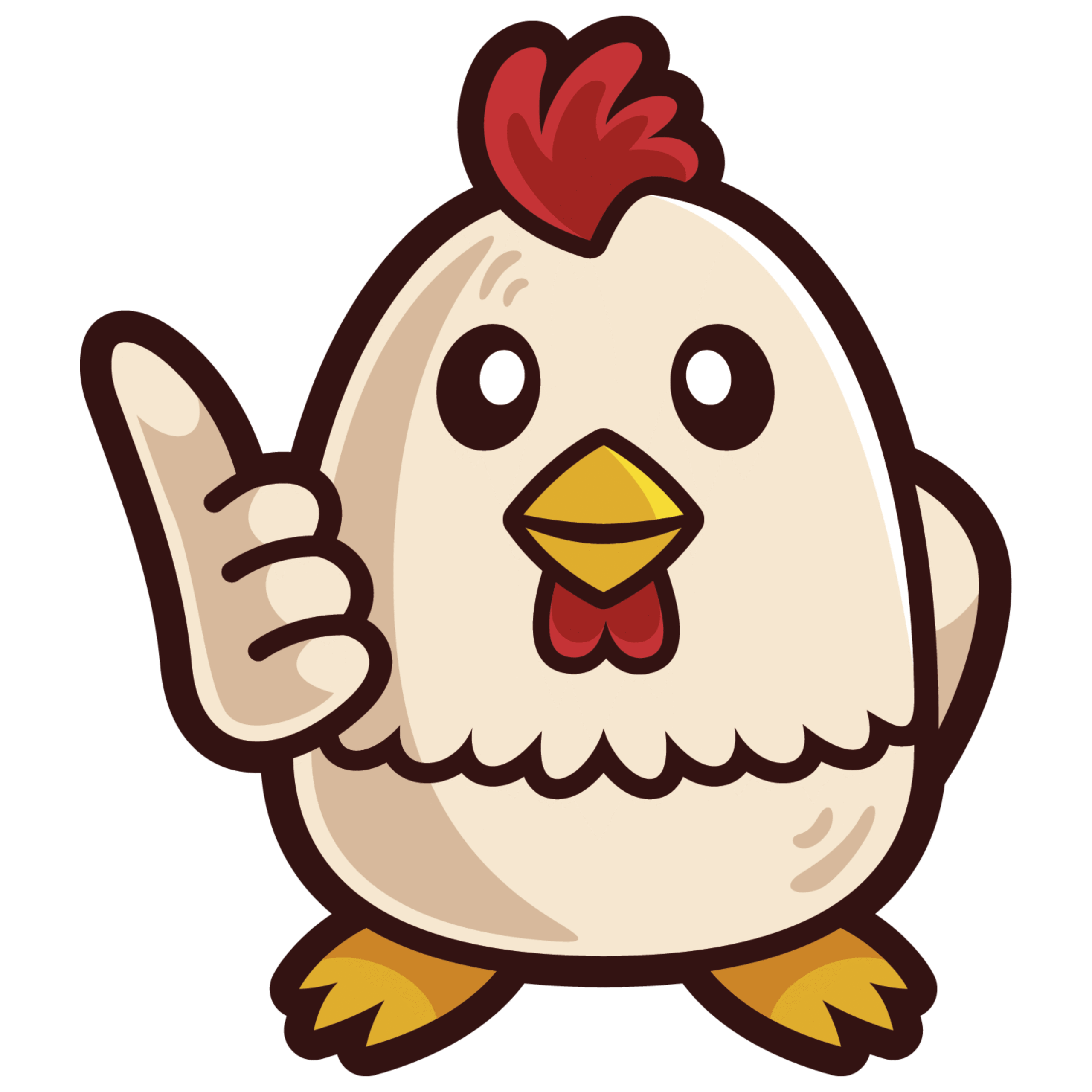
Dahline Poultry
Established in 2018

Dahline Poultry
Established in 2018
Care Tips
Tips to ensure your chicks thrive from day 1!
Quick Checklist
✔ Warm brooder with heat lamp
✔ Thermometer
✔ Electrolyte mix or sugar
✔ Starter feed
✔ Chick waterer (with marbles)
✔ Bedding (no cedar!)
✔ Clean towels or paper towels
Still Need Help?
We’re here for you!
ARRIVAL INSTRUCTIONS
Start here the moment your chicks arrive.
- Unpack Immediately: Gently remove chicks from the shipping box as soon as they arrive. Check each chick for signs of stress, weakness, or injury.
- Hydration is Critical: Prepare warm (95°F) water with a small amount of sugar (1 tablespoon per quart). Dip each chick’s beak into the water to encourage drinking.
- Prevent Drowning: Use a shallow chick waterer and add clean marbles or pebbles to prevent chicks from falling in and drowning.
- Delay Feeding Briefly: Allow 1–2 hours for chicks to fully hydrate before offering food. Hydration helps reduce shipping stress and encourages appetite.
BROODER SETUP
A safe, clean environment is key to your chicks’ early health.
- Container: Use a plastic tote or stock tank—at least 12″ tall with room for growth.
- Heat Source: A red heat bulb in a clamp lamp. Avoid white lights at night and do not use heat plates for day-old shipped chicks, as they may not recognize them as heat sources.
- Temperature: Start at 95°F. Lower the temp by 5°F each week until they’re fully feathered (around 6 weeks old).
- Placement: Position the heat source to one side so chicks can self-regulate, moving between warm and cool zones.
- Bedding: Use pine shavings, paper towels, or straw. Never use cedar—it’s toxic. Keep bedding dry and change as needed.
FEEDING & HYDRATION
Know exactly what your chicks need to grow strong and healthy
- Feed: Use a quality chick starter (18-20%) feed. Crumbles are easiest for tiny beaks.
- Water: Always provide clean, room-temperature water. Change daily.
- No Treats Yet: Avoid kitchen scraps, grit, or scratch grains during the first week. Let their digestive system develop gradually.
- Clean Daily: Wash feeders and waterers regularly to prevent disease.
HEALTH & SAFETY
Early detection of health issues will be crucial.
- Pasty Butt: A common issue where droppings block the vent. Clean gently with warm water and apply coconut oil to prevent recurrence.
- Lethargy or Chilling: Chicks should be active and peeping. Cold or weak chicks need immediate warming and hydration.
- Ventilation: Ensure good airflow without drafts. Avoid ammonia buildup from droppings.